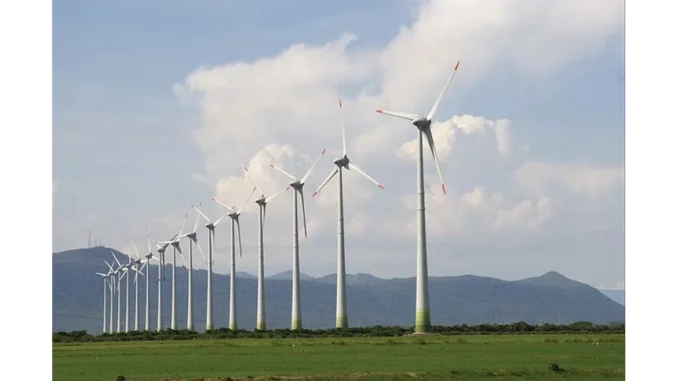
During a recent conversation with Emma Richardson, Director of Sustainability at GreenFuture Energy, her enthusiasm for the Association for Decentralised Energy’s (ADE) latest initiative was unmistakable. The ADE has launched two ambitious missions aimed at steering the United Kingdom towards net zero emissions, and Emma was eager to elaborate on these transformative undertakings.
Air quality is vital in planning. See how Focus360 Energy can assist.
“The ADE’s new missions are groundbreaking,” Emma began, her passion evident. “They provide a clear pathway for our nation to advance towards a sustainable future. It’s not merely about reducing carbon emissions; it’s about fundamentally transforming our entire approach to energy.”
The first mission, as Emma elucidated, concentrates on enhancing energy efficiency across a multitude of sectors. The ADE is advocating for the broad adoption of advanced energy management systems and innovative technologies that can substantially curtail energy consumption. “This mission is about maximising the utility of the energy we already generate,” she explained. “By improving efficiency, we can significantly reduce waste and make our energy use far more sustainable.”
The second mission, Emma continued, hinges on the decentralisation of energy production. This shift involves moving away from large, centralised power plants in favour of smaller, localised energy sources. “Decentralisation is vital,” Emma stressed. “It enables the development of more resilient and adaptable energy systems. Local energy production is better suited to meet the specific needs of communities and reduces dependence on the national grid.”
Emma’s ardour for these missions was compelling. As she spoke, it was apparent that she had unwavering confidence in the potential of these initiatives to instigate meaningful change. “The ADE has delineated a comprehensive roadmap,” she said. “They’ve pinpointed key areas requiring focus and outlined practical steps to achieve our objectives.”
A crucial aspect of the ADE’s strategy is the integration of renewable energy sources. Emma underscored how the missions encourage the adoption of solar, wind, and other renewable technologies. “Renewables are a significant part of the solution,” she remarked. “Increasing our reliance on clean energy can drastically reduce our carbon footprint.”
Nevertheless, Emma was quick to acknowledge the challenges inherent in the transition to net zero. “There are undoubtedly obstacles to overcome,” she conceded. “One of the largest challenges is ensuring that the requisite infrastructure is in place. We need to invest in upgrading our energy networks and developing new technologies.”
Despite these challenges, Emma maintained an optimistic outlook. She commended the ADE for their proactive stance and their dedication to driving change. “The ADE is assuming a leadership role,” she observed. “They’re not just discussing what needs to be done; they’re actively facilitating its realisation.”
As the conversation drew to a close, Emma shared her aspirations for the future. “I genuinely believe we can achieve net zero,” she affirmed. “It will require a concerted effort from all sectors of society, but with the right policies and initiatives, we can attain this goal.”
Reflecting on Emma’s insights, it is evident that the ADE’s new missions signify a substantial advancement in the UK’s pursuit of sustainability. By concentrating on energy efficiency and decentralisation, and by advocating for the integration of renewable energy, the ADE is laying the groundwork for a greener, more sustainable future.
For those dedicated to environmental sustainability, the ADE’s missions serve as a beacon of hope and a source of inspiration. They remind us that with determination and collective effort, significant progress can be achieved. As Emma so eloquently articulated, “It’s not just about what we can accomplish today; it’s about what we’re building for tomorrow.”


Be the first to comment